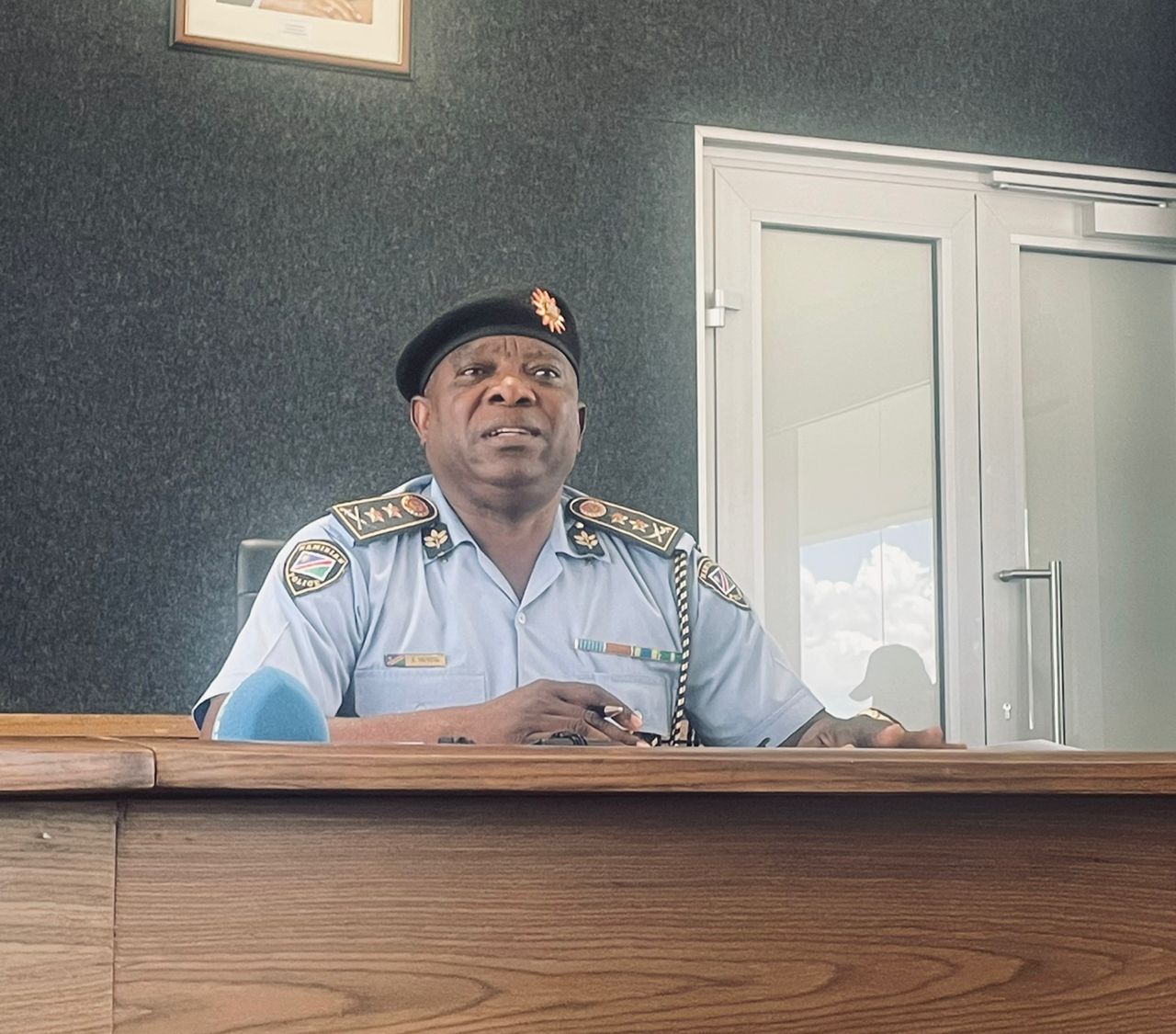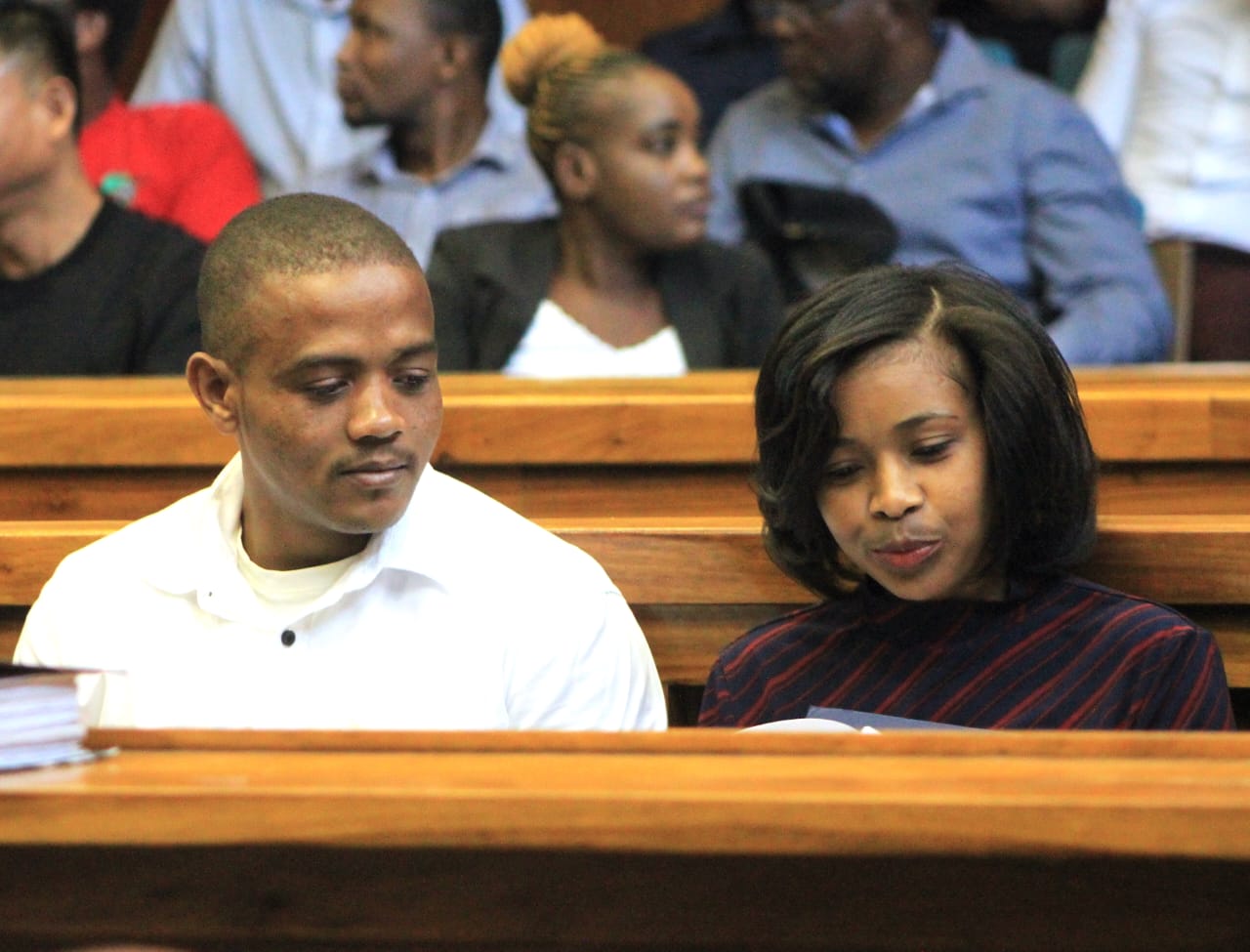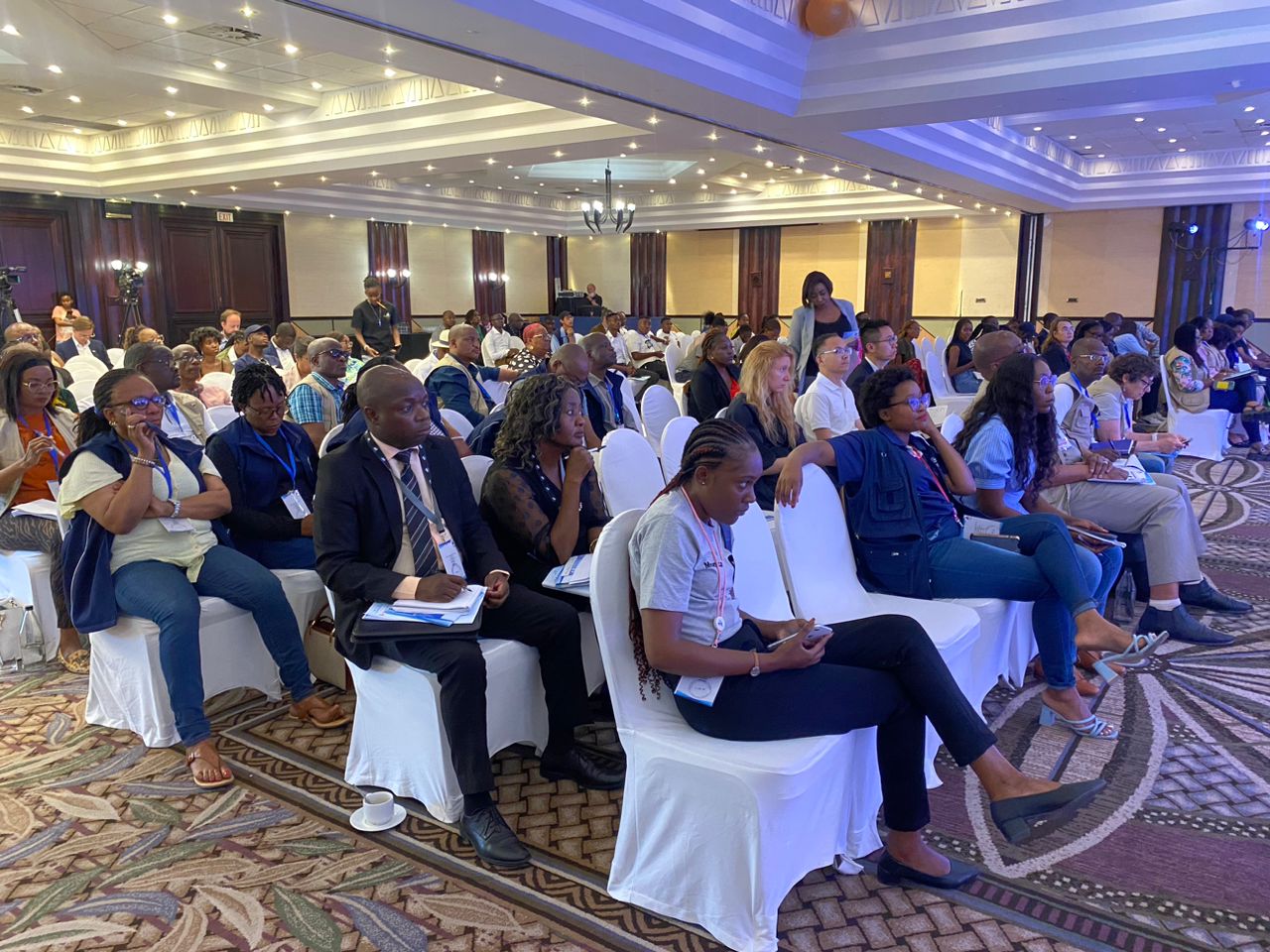… Communities lack access to drinking water amid political parties promising free water and global funding for projects
“People have been suffering for years.”
Clemence Hinanifa of the Otjimbingwe Farmers’ Association says the lack of water at his village has been ongoing for a long time.
Despite last year’s census results stating that 91.4% of Namibian households have access to drinking water, the reality is different.
Hinanifa mentions broken pipelines and closed boreholes as key failures, with poor to no maintenance.
For the rural community of Omatjete, the drought is unrelenting.
“Without water we can do nothing,” says Agnes Tjindjo-Tjimbundu, the Erongo region’s coordinator of the Namibia Rural Women Assembly.
Omatjete relies on boreholes, which often run dry due to erratic rainfall.
Residents are demanding urgent action.
They say they have not received drought-relief funds as announced by government officials.
“We keep hearing of funds allocated for drought relief, but there is no action on the ground,” Tjindjo-Tjimbundu says.
She advocates for rehabilitating boreholes and building earth dams to preserve rainwater.
According to her, every village should be equipped with at least two boreholes.
The 2023 census purports that this region’s access to safe drinking water stands at 97.6%.
ERONGO
Despite some advancements, the Erongo Regional Council’s 2023/24 reflection and 2024/25 budget outline reveal the stark reality: The water crisis continues to deepen.
A few projects were completed last year, including the first phase of the Ozondati-Omatjete water pipeline and a temporary water line for the Uis community, which had been plagued by alkaline blockages.
Additionally, a 5km water line was finalised for Walvis Bay Rural’s !Nara plant processing community, expected to benefit over 115 harvesters.
However, the region’s chief regional officer, Sam Ntelamo, admits these efforts fall short in meeting the region’s needs.
“A total of nine boreholes were drilled, but only three produced viable water, while six have already dried out, underscoring the volatility of groundwater resources,” he says.
Ntelamo says financial constraints further hinder progress.
“The Ozondati-Omatjete pipeline is being phased out due to limited budget allocations.

This restricted funding threatens the council’s ability to meet essential water needs, particularly in drought-stricken rural areas,” he says.
In the 2024/25 budget, the Erongo Regional Council allocated close to N$1 million each for water infrastructure in Uis and Okombahe.
Another N$19 million has been earmarked for the Wlotzkasbaken water reticulation project, intended as a long-term solution.
Yet for areas like Omatjete, where water scarcity remains an acute issue, N$17 million has only funded phase one of the pipeline expansion, while N$11 million is set aside for phase two.
The piecemeal approach, forced by funding limitations, leaves rural residents grappling with uncertainty.
“Water is a serious concern in our region,” Ntelamo says, “but the phased approach leaves these communities at risk of extended delays before their water demands are fully met.”
Traditional leader Herman Areseb from the Utuseb community says residents at Utuseb outside Walvis Bay are burdened by the drought as the river has run out of water.
He says on top of this, underground water has dried up because of developments.
“We depend on the Kuiseb River as we are in the desert. Our people and animals depend on it,” Areseb says.
They do not get a lot of rain and their one source of income is the !Nara plant, which is seasonal.
“People here do not have jobs because it is a desert. In the early years it was green here as we had a lot of underground water,” Areseb says.
With the development of the town and the establishment of mines, the boreholes had less water, the traditional leader says.
“The absence of rain also means less rain for the river. We are really suffering.”
Walvis Bay Rural constituency councillor Donatus Tegako, who is responsible for the Utuseb area at Walvis Bay, says the only way drought and hunger can be solved is through agriculture.
“We can turn the Utuseb area into agricultural land. We can use underground water supply, which is very good in this area,” he suggests.

ZAMBEZI
In the Zambezi region, Sibbinda constituency councillor Mickey Lukaezi says incompetent borehole drillers in his area have hampered water provision and has resulted in the government paying double for the same services.
“In the previous financial year, the water of three out of the six boreholes that were drilled were not fit for human consumption and people were left without water as a result,” he says.
However, the involved contractors were already paid, he says.
Lukaezi says the delayed implementation of water projects is another challenge in the region.
“As much as the budget is made available, those responsible to implement are taking long.
As for the current financial year, no borehole has been installed in my constituency despite the money being available.
“Additionally, many boreholes that were drilled in previous droughts have not been installed, completely leaving villagers without water.
“This has resulted in farmers taking ownership of such boreholes by completing the installation process and requiring other farmers to pay for water they collect from such a borehole,” he says.
Lukaezi says the government could save a lot of money if it used the drilling rigs it has procured.
“The government could also cut costs if it could look into constructing mini pipelines that draw water from one borehole, instead of drilling boreholes for each person every 2.5km,” he says.
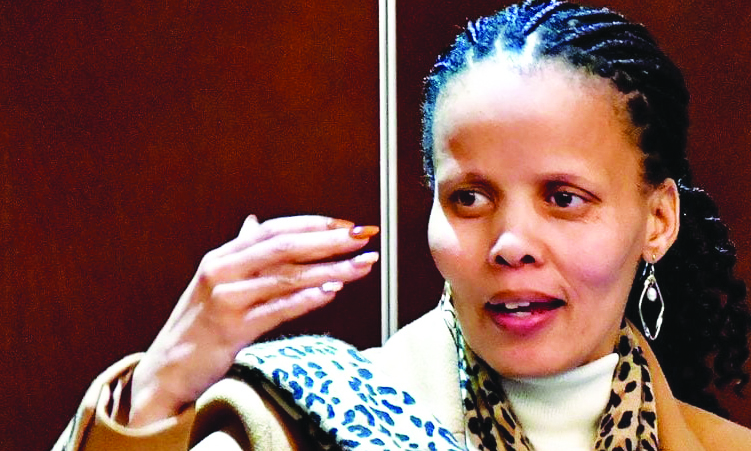
//KHARAS
//Kharas governor Aletha Fredericks says 22 boreholes were drilled by the Ministry of Agriculture, Water, and Land Reform, with 20 proving successful during the 2024/25 financial year.
“Ten boreholes were installed and seven have been completed this financial year. Additionally, eight water points were rehabilitated, with another eight restored through the Social Security Fund,” she recently told the attendants of a ministry performance review workshop.
The ministry completed one earth dam at Koichas and plans to build another in the current financial year, she said.
A ministerial report states that two mini-desalination plants were completed in the Karasburg East constituency, with two more planned.
Fredericks noted the achievements of the lands division, which registered 154 customary land rights and six leaseholds to enhance tenure security.
“The division acquired 166ha of land for resettlement purposes and valued two farms for potential acquisition related to the Neckartal Dam irrigation scheme. Boreholes were sited, drilled and installed on 25 farming units,” she said.
NamWater recently suspended drawing water for irrigation purposes from the Hardap Dam.
This was attributed to low levels of water in the dam due to drought.
“This decision, however, does not affect the drinking water supply to the Mariental municipality or surrounding communities,” NamWater spokesperson Lot Ndamanomhata says.
The Namibia Seasonal Outlook for 2024/2025, produced by the Namibia Meteorological Service, notes that during the 2024/25 rainfall season, the //Kharas region and the bulk of the Hardap region have a high likelihood of below-normal rainfall.
The outlook says some regions, such as Erongo, Omusati and Kunene, were experiencing their fifth consecutive year of drought, while the //Karas, Hardap, Khomas and parts of the Omaheke region were affected by a second year of drought.
“Communities, especially farmers, are encouraged to harness the wet conditions through enhanced rainwater and floodwater harvesting, as well as efficient dam storage practices,” the Meteorological Service says.
Minister of agriculture, water and land reform Calle Schlettwein says the drought is revealing its severe impact, with climate change and the resulting water scarcity being challenges Namibia must tackle with urgency.
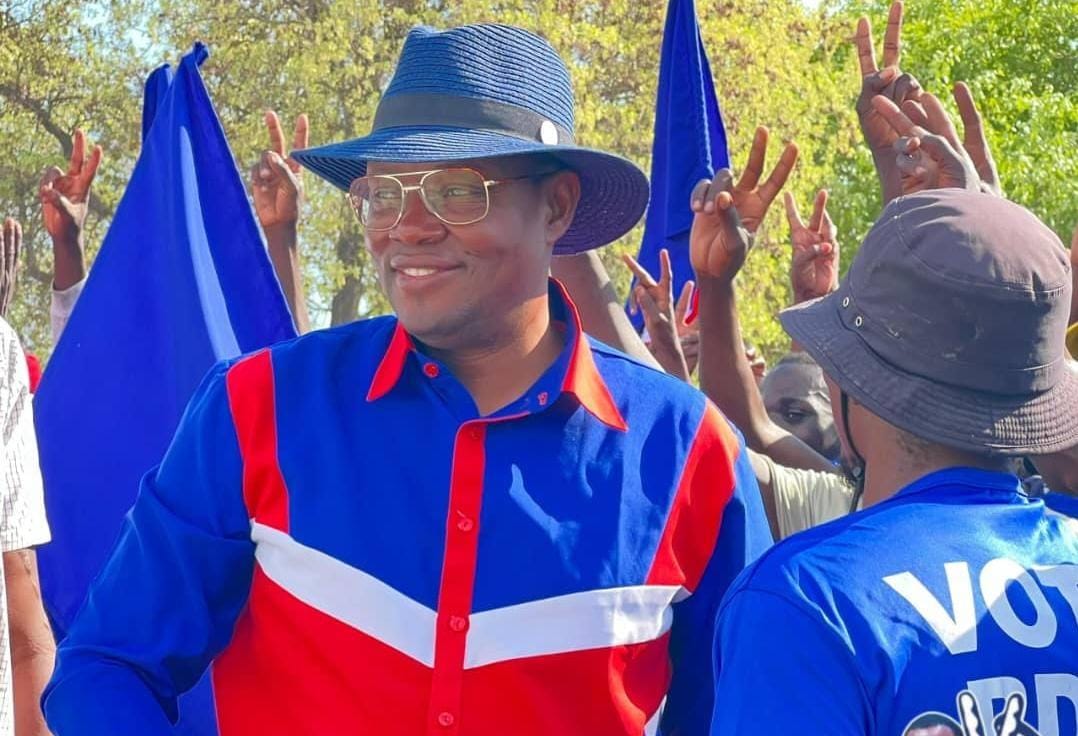
PROMISES
Popular Democratic Movement (PDM) president McHenry Venaani at a recent rally at Walvis Bay said the country’s drought could be solved through the proper planning of seawater desalination.
“To provide a water supply line for Namibia’s interior and guarantee consistent access to water for farming, the PDM administration would build desalination plants along the coast,” he said.
He said his government will also install water points within 100 metres of settlements – especially in places where human-wildlife conflict is likely to occur.
“We also cannot ignore the persistent problems with sanitation in our communities. This issue affects not only our health, but also our dignity,” he said.
The Namibia Economic Freedom Fighters in its manifesto says the party will give the country’s rural areas access to water free of charge.
The Republican Party (RP) in its manifesto says it will get global funding to keep local water supply sustainable.
“The RP sees water as a scarce and life-important natural resource that should be managed according to strict standards, specifically when it comes to international investments that will influence a water source,” it says.
The party will impose strict rules on the use of rivers, dams and aquifers.
“Focus should be on advantages for Namibians and any threat to a source should be a non-negotiable standard,” it says.
Swapo promises to accelerate the implementation of the desalination plant in the Erongo region “to support national and industrial water security”.
The government approved the development of a desalination plant in the Erongo region earlier this year.
This is also the same commitment the party promised in its 2019 manifesto.
“To deal with water shortages in the northern areas also accelerate the provision of potable water to rural communities through excavating, expanding and/or rehabilitating of the earth dams, drilling rigs and borehole units in relevant constituencies to ensure water security for human and animal consumption by 2027,” its manifesto reads.
The National Democratic Party says its government would ensure clean water at every school by 2026.
The National Unity Democratic Organisation does not want the commercial farmers to pay for water.
“Abolish water payment for agricultural use in communal areas to promote food security efforts towards creating drought-resilient communities in rural areas,” the party says.
Once in office, Independent Patriots for Change will develop a comprehensive sustainable water-use plan for agricultural development on and around key underground aquifer systems, it says.
“Simplify and remove barriers to water abstraction from non-sensitive water bodies, with a focus on the registration of abstraction rather than the regulation of such,” the party states in its manifesto.
The Landless People’s Movement wants to replace the canal system by adding a piped water system to ensure clean and safe drinking water for residents of the four northern regions.
“Build a desalination plant in the Kunene, //Kharas regions, as well as developing the Ohangwena and Eiseb water aquifers,” the LPM says.
Stay informed with The Namibian – your source for credible journalism. Get in-depth reporting and opinions for
only N$85 a month. Invest in journalism, invest in democracy –
Subscribe Now!




